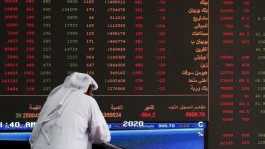This has sparked speculation that some of these countries may not be able to impose tax at the beginning of 2018 as originally planned. This was confirmed by Khalid Ali Al-Bustani, Director General of the Federal Tax Authority in the UAE, on Tuesday.
Al-Bustani said in a press conference that the UAE and Saudi Arabia will implement the value-added tax from January 2018 and the rest of the GCC can apply it until the end of 2018. Al-Bustani did not provide further details about the reasons for the slowdown in these countries in imposing the tax, but tax experts in the region believe that Kuwait in particular may be delayed due to reasons including the slowdown of a device The civil service and its relatively independent parliament, who may want to have a say on the matter. Last week, the Kuwaiti Ministry of Finance said that parliament, where deputies who wanted popular gains in the past had sought to ease austerity measures, would have the final decision in accepting or rejecting a draft Law on Value Added Tax. Officials in the Sultanate of Oman did not announce a specific date for the implementation of VAT, while their counterparts in Bahrain, who are also facing difficulties in passing austerity measures, said that it is expected that this will happen. It's in the middle of 2018. After reaching a regional tax agreement, Saudi Arabia, the UAE, and Bahrain cut diplomatic and transportation ties with Qatar, accusing Doha of supporting terrorism. Qatari officials did not say whether or not this would affect their implementation of the VAT schedule. Al-Bustani said that the UAE will start registering companies that will be subject to value-added tax in mid-September, and expects laws related to that tax to be issued in the third quarter of the year to be applied. In the last quarter. Companies with revenues of at least $ 100,000 a year must register themselves, or they will face fines. Al-Bustani added that the UAE expects to register between 300 and 350 thousand companies for VAT, and the tax is likely to pay consumer prices in general to rise by about 1.4 percent. .The government also intends to implement a 100 percent selective tax ...






































